
Campaign frequently asked questions
All your questions about our campaigns for forests, air pollution, plastics, energy, and environmental justice answered here.
Explore by topics
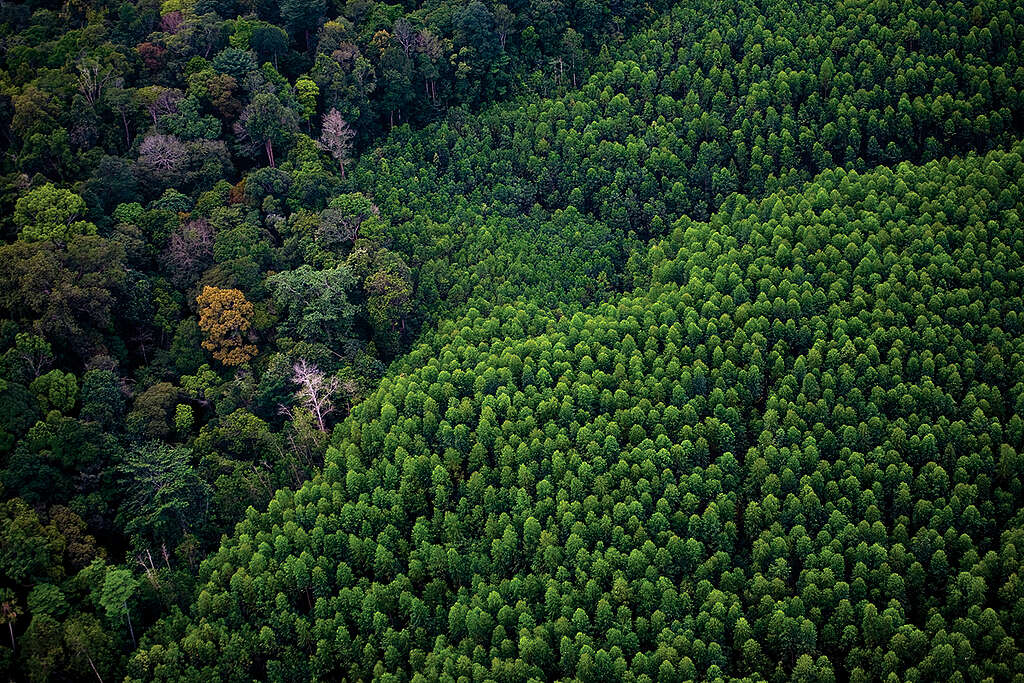
Forests
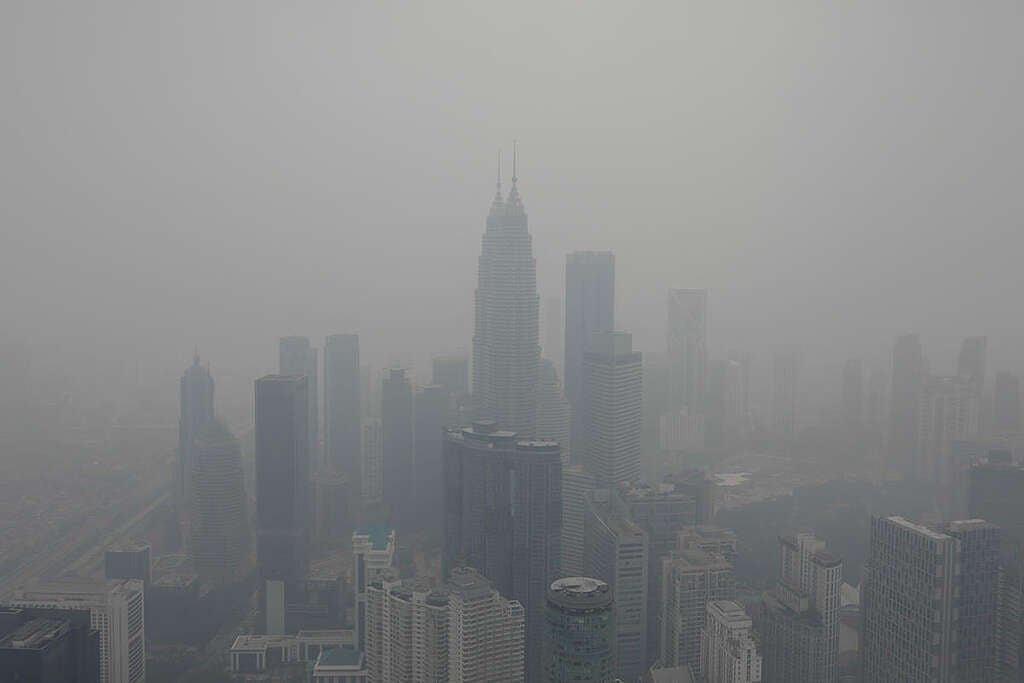
Air pollution
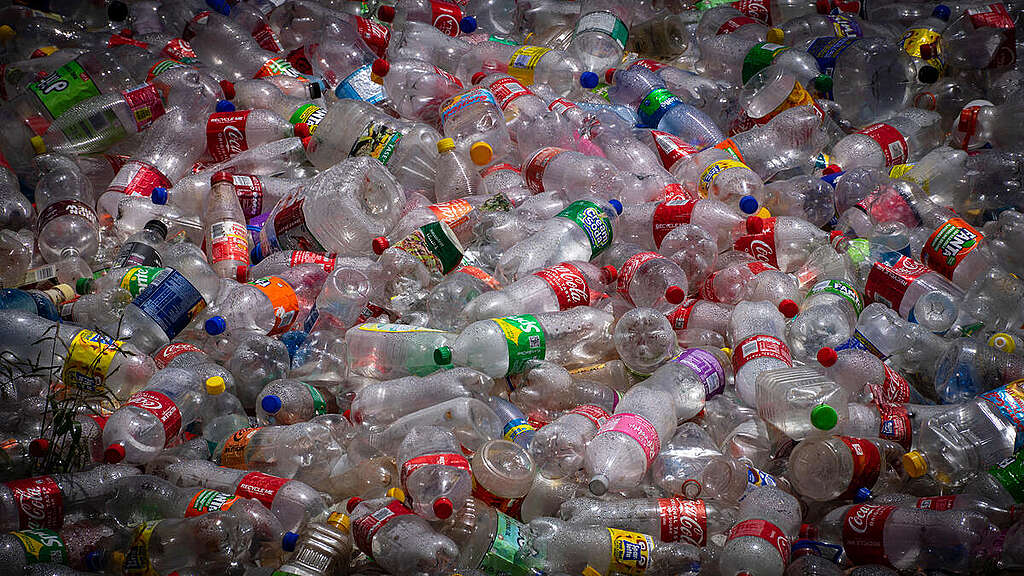
Plastics
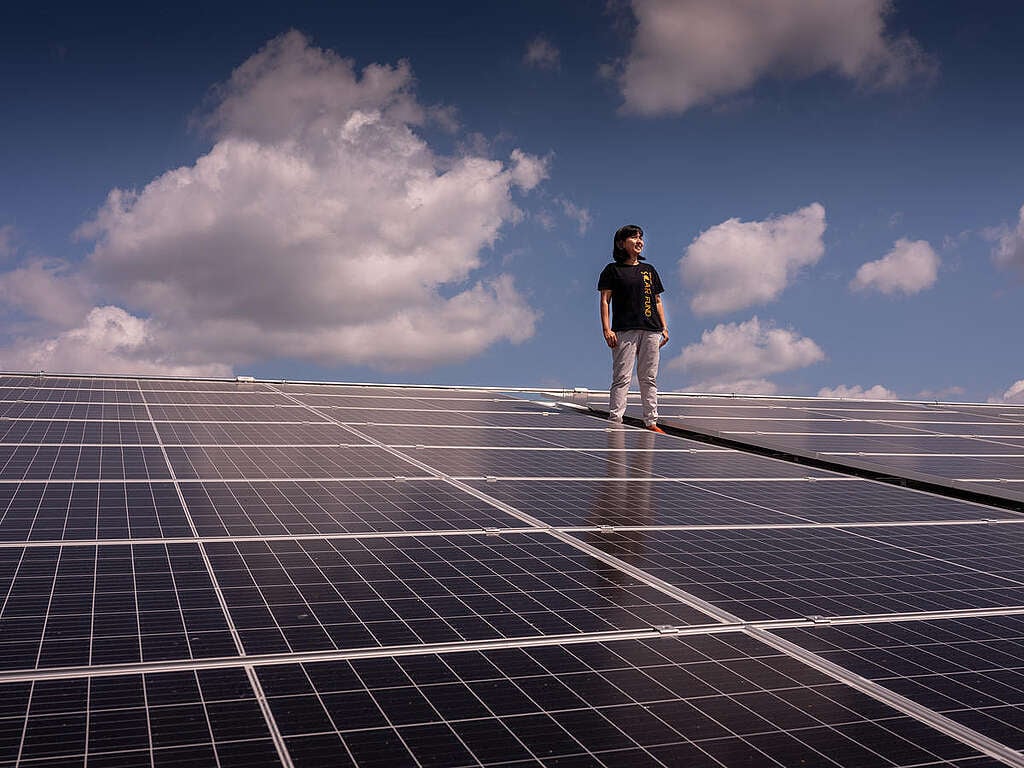
Energy
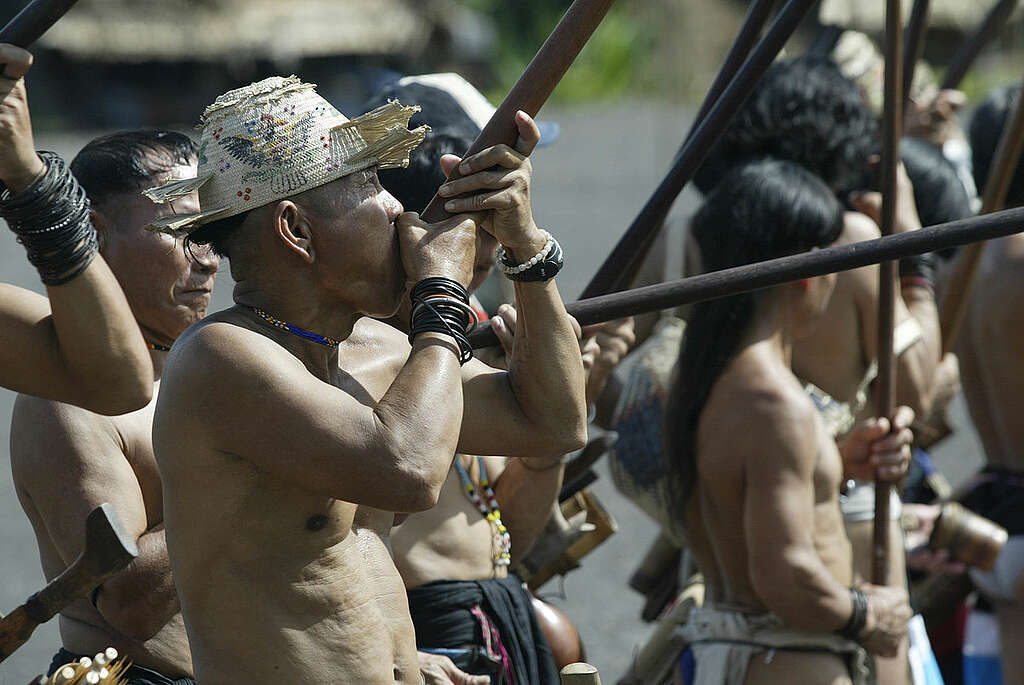
Environmental Justice
Forests
Our world is in crisis. Our forests are disappearing and natural habitats are being destroyed. Deforestation for farming and native forest logging leaves wildlife homeless, impacts ecosystems and emits carbon alongside the most polluting industries.
Deforestation is the destruction of natural forest, including both never-before bulldozed forest and healthy regenerating or fully regenerated forest. Greenpeace defines deforestation in Malaysia as the permanent conversion of forested land into non-forest uses, typically for activities such as logging, palm oil plantations, agriculture, or infrastructure development. This process often involves the clearing of natural forests, including primary and secondary forests, which are essential ecosystems for biodiversity and carbon storage. Greenpeace advocates against deforestation due to its significant environmental impacts, including habitat loss for wildlife, disruption of indigenous communities, and contribution to climate change through increased carbon dioxide emissions.
The major drivers of deforestation in Malaysia include extensive clearing for palm oil plantations, which is a leading cause due to Malaysia being one of the world’s largest producers. Logging, both legal and illegal, for timber extraction also contributes significantly. Additionally, agriculture beyond palm oil, such as rubber plantations and commercial crops, leads to further forest conversion. Also, infrastructure projects like roads and dams, mining activities for minerals such as bauxite, and urban expansion for residential and industrial purposes also contribute to deforestation, causing biodiversity loss and environmental degradation across the country.
Malaysia has various policies and regulations aimed at forest conservation, but enforcement and implementation effectiveness can vary. Essentially, the current policies and regulations in Malaysia concerning forest conservation face significant challenges:
(1) Ambiguous Definitions of Forest Cover: Malaysia’s policies often lack clear definitions of what constitutes forest cover, leading to inconsistent management and monitoring practices.
(2) Insufficient Protection of Forests: Current regulations fail to adequately safeguard forests, resulting in persistent issues such as illegal logging and unsustainable agricultural and developmental activities.
(3) Lack of Transparency and Accountability: There is a significant lack of transparency in forest data and accountability in governance practices, which hinders effective monitoring and enforcement of conservation measures.
(4) Overlooked Indigenous Rights: Indigenous communities’ rights to ancestral forest lands are often disregarded, undermining their cultural heritage and sustainable livelihoods while exacerbating conflicts over land use and conservation.
Transparency and accountability can be improved through measures such as public access to forest data, independent monitoring of logging activities, strengthening of anti-corruption measures, and increased involvement of local communities in decision-making processes.
Altered precipitation patterns, increased temperatures, and more frequent extreme weather events like droughts and storms. These changes can stress forest ecosystems, affecting species composition, growth rates, and overall forest health. Also, climate change can lead to shifts in habitats and the distribution of plant and animal species within Malaysian forests. On the other hand, deforestation worsens climate change. Forests play an important role in mitigating climate change by absorbing carbon dioxide from the atmosphere through photosynthesis and storing it in biomass and soil. When forests are cleared or degraded, this stored carbon is released back into the atmosphere as carbon dioxide, contributing significantly to greenhouse gas emissions. Hence, both addressing climate change impacts on forests and reducing deforestation are critical for maintaining the health and resilience of Malaysia’s forest ecosystems.
Air Pollution
Exposure to air pollution is a leading global health risk which causes ill health and millions of premature deaths each year worldwide. Blanketing large parts of Malaysia, air pollution like haze has affected all of us for the past few decades, regardless of age, backgrounds and differences.
Greenpeace is actively engaged in research, advocacy, and community outreach to increase awareness about air pollution, advocate for a Domestic Transboundary Haze Act through research and investigation, and pressure authorities to take decisive action to safeguard public health and the environment.
Haze is a form of air pollution characterised by reduced visibility due to fine particulate matter (PM2.5) and other pollutants. It affects our health and economy significantly in Malaysia. For more information, you can check out https://www.greenpeace.org/malaysia/press/49795/the-state-of-air-quality-in-malaysia/u0022u003e our article about the health and economic impacts of air pollution.
Most of the haze in Southeast Asia is caused by preventable man-made disasters, such as peatland destruction and forest fires. Haze occurs in two forms:
(1) Domestic Haze: Peat fires in Malaysia;
(2) Transboundary Haze: Haze blown across borders by wind patterns.
A common misconception is that Malaysia’s transboundary haze only comes from Indonesia. In reality, it also originates from other Southeast Asian countries, which are likewise affected. For instance, the 2023 transboundary haze is linked to the growth of monoculture agriculture in Thailand and nearby countries.
Haze is a man-made phenomenon, mainly resulting from forests that are being fragmented and cleared, and peatlands that are being drained to make way for large scale plantations, primarily for palm oil plantations or pulpwood in Southeast Asia. The annual dry season combined with El Niño that causes drought exacerbates the risk of creating catastrophic fire outbreaks.
The Domestic Transboundary Haze Act in Malaysia is legislation designed to address haze pollution within the country. It regulates activities, particularly land and forest fires, to prevent and manage haze. The Act enables authorities to enforce measures, hold accountable those responsible for haze, and safeguard public health and the environment.
In Indonesia, Greenpeace Indonesia is also campaigning on this issue. For decades, Greenpeace has been actively spreading the messages that forest fires that occurred are a result of decades of forests and peatland destruction related to the expansion of monoculture plantations. Greenpeace paid special attention to peat, which when dried will contribute to massive carbon emissions that cause global warming as well as smog. Solutions for forest fires cannot be limited with firefighting efforts, which will not only waste governmental budgets, but also will cause economic losses and negative health impacts. We need to address the root cause of the problem.
Transparency is key in fighting deforestation. Governments should require companies to publish maps of their plantations. This would help responsible companies prove they are clean and not involved in destroying forests and put companies that are still deforesting under the spotlight, identifying those who are responsible for setting peatland and forests on fire.
Sign our clean air petitionPM2.5 basically refers to fine particulate matter or air pollutants from fires and other sources that can affect our health because it can travel deep into the lungs and may even enter the bloodstream. When there is a high concentration of these tiny particles in the air, it can reduce visibility and cause the air to appear hazy. https://www.greenpeace.org/malaysia/story/2476/your-top-questions-on-haze-answered/
You can check out a video here for further explanation.
Plastics
Single-use plastic is harmful to human health, perpetuates social injustice, destroys our biodiversity and fuels the climate crisis. We demand that governments commit to a strong Global Plastics Treaty that will stop runaway plastic production and use and ultimately end the age of plastic.
Plastic is functional and lasts a long time, but these same qualities also make it a big problem. It’s cheap and disposable, leading to massive pollution. In Malaysia, the widespread use of single-use plastics and inadequate waste management systems aggravate the plastic pollution, with an estimated annual per capita plastic use of 16.78 kilograms.
Plastic pollution in Malaysia harms marine life by causing animals to eat or get trapped in plastic. When plastic blocks water flow in rivers and drains, it worsens flooding during heavy rainfall, impacting communities and infrastructure. Moreover, the chemicals leached from plastics can contaminate food and water sources, posing health risks to people who consume affected seafood or polluted water.
Malaysia is one of the largest consumers of plastic in Asia, with an estimated annual per capita plastic use of 16.78 kilograms. This high consumption rate contributes significantly to the country’s plastic waste problem.
The main sources of plastic pollution in Malaysia include single-use plastics like bags, bottles, and food packaging, as well as industrial waste and littering. Improper waste disposal and limited recycling infrastructure cause the problem worse as well.
Marine life in Malaysia is severely impacted by plastic pollution. Animals can ingest or become entangled in plastic debris, leading to injury, suffocation, starvation, and death. This also disrupts the marine ecosystem and biodiversity.
Yes, plastic pollution can affect human health in Malaysia. Microplastics can enter the food chain through seafood and water, potentially causing health issues due to the chemicals and toxins they carry.
Greenpeace Malaysia is actively engaged in combating plastic pollution through various initiatives and advocacy efforts. Our main campaign is advocating for a Global Plastics Treaty. This treaty aims to establish international regulations and commitments to reduce plastic production, consumption, and pollution globally and domestically. We also work to raise awareness about the impacts of plastic pollution and mobilise public support for green alternatives.
To reduce plastic pollution, Malaysians can take several actions:
(1) Use reusable bags, bottles, and containers instead of disposable ones;
(2) Opt for products with minimal packaging or made from biodegradable materials when possible;
(3) Support our Global Plastics Treaty petition to urge the Malaysian government to implement stricter regulations on plastic production, reduction, and management;
(4) Spread knowledge about the harmful effects of plastic pollution and encourage others to adopt eco-friendly practices.
Alternatives to single-use plastics can be reusable bags, bottles, and containers, as well as products made from greener materials like bamboo, paper, and glass.
Biodegradable plastics can help, but they also have limitations and may not degrade properly in all environments. They can still contribute to pollution if not disposed of correctly, so reducing plastic use remains a priority.
Energy
We are in a climate emergency. Fossil fuels like oil, coal and gas are heating up the planet, causing sea levels to rise and making bushfires, floods and cyclones more frequent and extreme. The science is clear: we must get off fossil fuels and transition to renewable energy.
Renewable energy comes from the Earth’s natural resources – sunlight, wind, waves, the tides and geothermal heat from deep within our planet. It has two great advantages:
(1) It will never run out, unlike oil, coal and gas;
(2) It’s clean – it doesn’t pollute the planet or cause dangerous climate change. It is useful and adaptable.
Renewable energy can supply huge cities on the grid or remote villages unconnected to any mains electricity. And the sheer range of technologies means that one or another will be suitable almost anywhere.
Renewable energy is crucial for reducing greenhouse gas emissions and combating climate change. It helps diversify energy sources, enhances energy security by reducing dependence on imported fuels, and promotes economic growth through the creation of green jobs and investment in clean technologies.
Renewable energy comes from natural sources that are replenished over short periods, such as sunlight, wind, and water. Non-renewable energy, like fossil fuels (coal, oil, natural gas), are finite resources formed over millions of years and once extracted, cannot be replaced within human timescales.
In Malaysia, the energy sector is largely dependent on fossil fuels, especially natural gas and coal. This dependence poses challenges to transitioning towards renewable energy sources. Limited policy support and incentives for renewable energy development, coupled with a regulatory environment that favours traditional fossil fuels, is one of the challenges. Also, there is a need for substantial investment in grid infrastructure to accommodate intermittent renewable energy generation effectively. But, we need to ensure that the transition to renewable energy in Malaysia is not only about reducing carbon emissions and promoting renewable energy sources but also about fostering a just transition
A just energy transition aims to phase out fossil fuel funding in a manner that reduces inequality. It shifts the financial burden of addressing climate change onto polluters while prioritising economic, racial, and gender equality. It seeks to avoid leaving workers and communities behind, promoting inclusive growth, and ensuring that vulnerable groups benefit from the transition to cleaner energy sources.
Greenpeace Malaysia actively promotes renewable energy by advocating for policies that support clean energy over fossil fuels. We work to raise awareness about the benefits of renewable energy and the environmental harm caused by fossil fuels. Through our work, we strive to help push for stronger commitments to renewable energy targets and initiatives. We also collaborate with communities and support local movements to increase renewable energy adoption.
You can support renewable energy by installing solar panels on homes, opting for renewable energy suppliers, and conserving energy through efficient appliances and practices. If you own a business, you can invest in renewable energy projects, adopt energy-efficient practices, and advocate for policies that promote renewable energy development and investment.
Nuclear power is not classified as renewable. Unlike solar, wind, hydro, and geothermal energy, which rely on naturally replenished resources, nuclear power depends on uranium, a limited resource that requires mining and refining. Also, nuclear energy is dangerous, as demonstrated by the accidents at Chernobyl and Fukushima, which released massive amounts of radioactive material. Even without such disasters, nuclear power generates radioactive waste at every production stage, including uranium mining and reprocessing spent reactor fuel. Some of this waste will remain hazardous for hundreds of thousands of years, and no safe storage solution exists to prevent future problems. Greenpeace has always fought – and will continue to fight – vigorously against nuclear power because it is an unacceptable risk to the environment and to humanity. Instead of backing nuclear power, our government needs to invest in renewable energy including wind and solar power. A thriving renewable energy industry will create jobs, provide cheaper electricity and help cut emissions much faster than nuclear power.
Environmental justice
Southeast Asia is experiencing escalating impacts of climate change such as cyclones, hurricanes, floods, droughts, and extreme temperatures. Despite contributing relatively little to global emissions, marginalised populations are disproportionately affected, exemplifying environmental injustice.
Environmental justice aims to address the disproportionate impacts of environmental change on vulnerable and marginalised communities and countries. This principle emphasises fairness and equity by holding accountable those primarily responsible for causing environmental damage and advocating for solutions that prioritise the needs of those most affected. Vulnerable populations, such as Indigenous communities facing threats to their lands from melting permafrost and extreme weather, and marginalised groups like ethnic minorities experiencing environmental racism, bear a heavier burden. Environmental justice seeks to ensure these communities have equitable access to resources, participate in decision-making processes, and are supported in adapting to and mitigating the impacts of environmental change.
Environmental justice is important because climate change disproportionately affects marginalised communities, including Indigenous peoples and low-income populations. These groups often have limited resources to adapt to climate impacts and are least responsible for greenhouse gas emissions.
Environmental justice intersects with human rights by recognising that everyone has the right to a safe, healthy, and sustainable environment. It emphasises the rights of affected communities to participate in decision-making processes that impact their lives and advocates for policies that protect vulnerable populations.
Environmental justice aims to ensure that the transition to a low-carbon economy benefits all, including workers in fossil fuel industries and economically disadvantaged communities. It advocates for green jobs, equitable access to renewable energy, and measures to prevent economic displacement during the shift away from fossil fuels.
Still Have Questions?
Your question matters to us. If you couldn’t find the answer you were looking for, we are here to help.
Take action with us
-
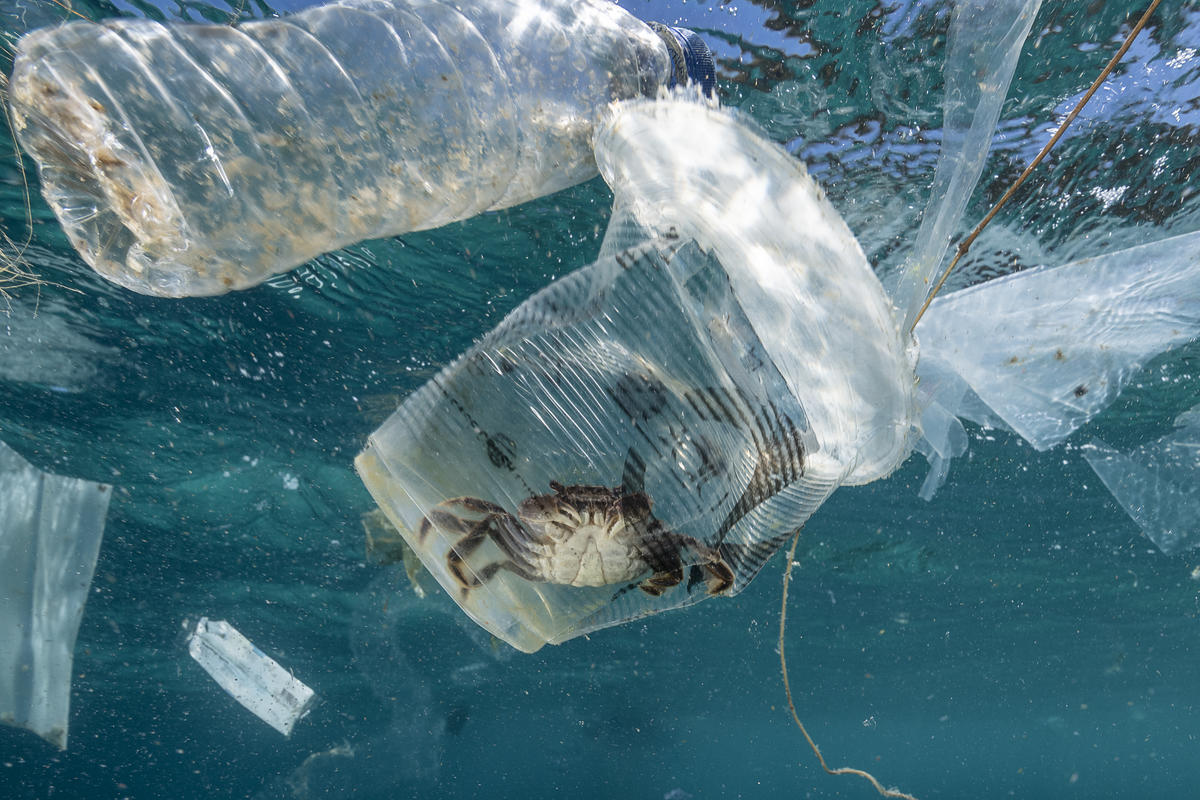
Join the Fight Against Plastic Pollution
Unite to cut single-use plastic. Call on the Malaysian government to lead for a robust Global Plastics Treaty. Together, we make a difference!
-
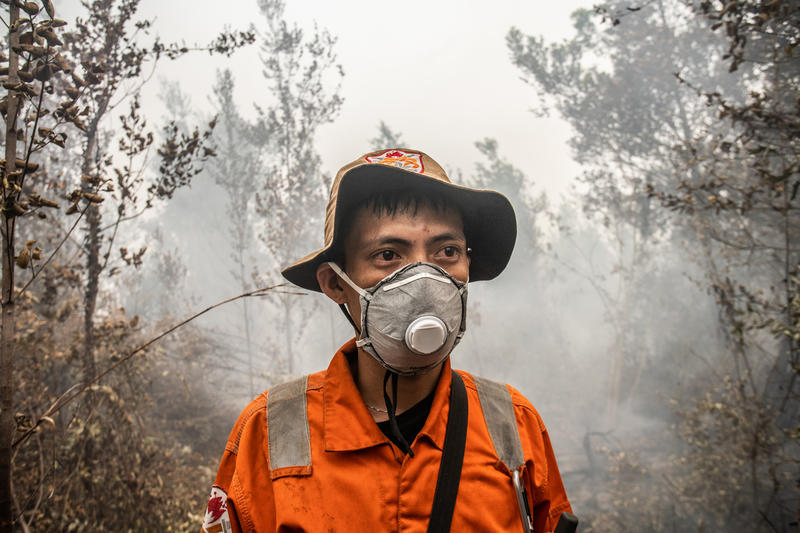
Every Donation Counts
We can’t do this without your help. Take action for environment protection, please make a donation today.
-
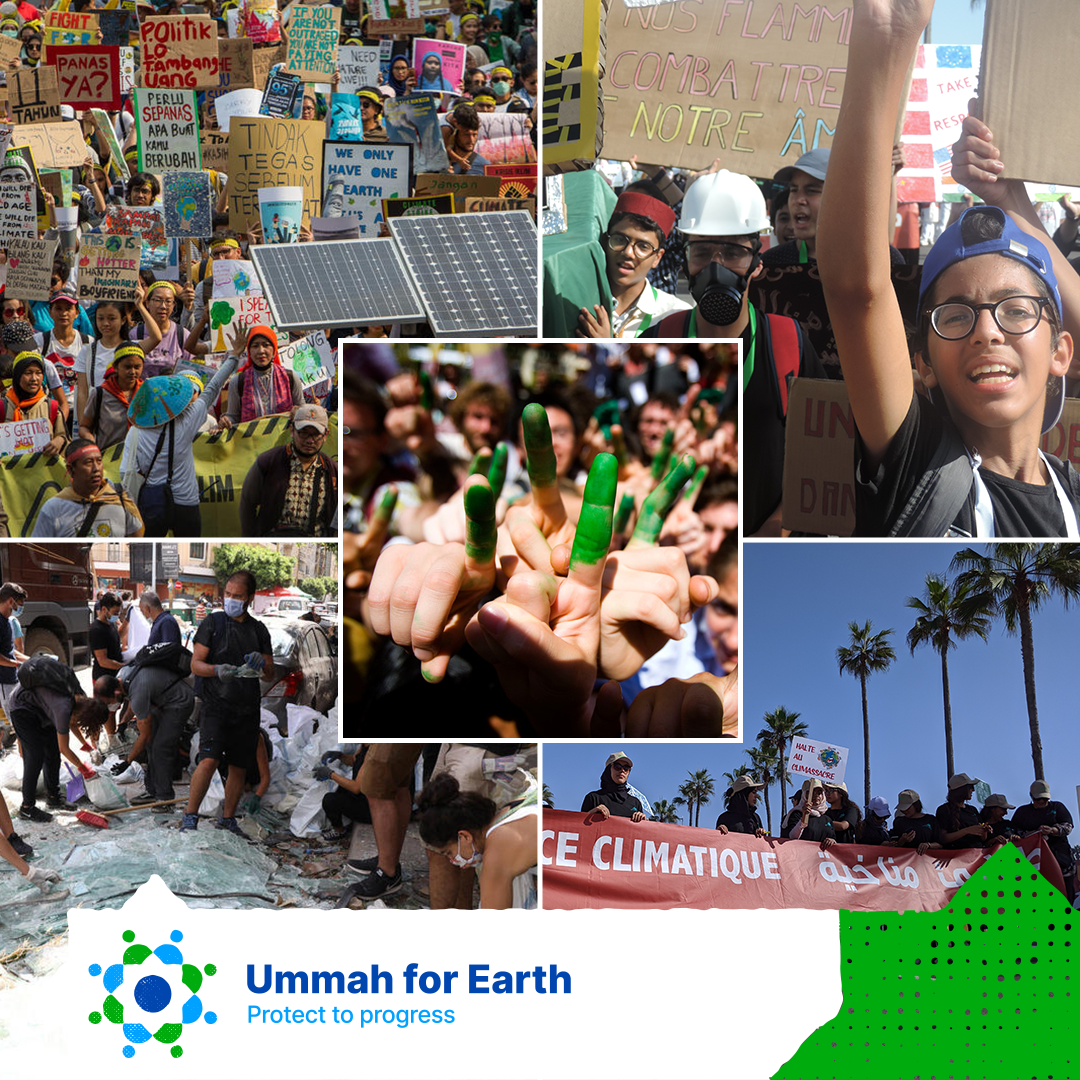
Ummah for Earth
Umat Islam di seluruh pelusuk dunia mempunyai perpaduan yang sangat kuat dan teguh. Kita perlu bersatu untuk menyelamatkan planet bumi.
Subscribe for updates
Together we are part of a growing, global movement determined to bring about the changes our planet desperately needs.
